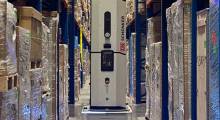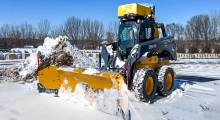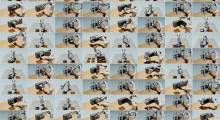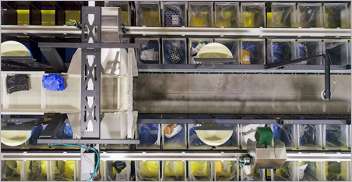America Makes and Air Force Research Laboratory, Materials & Manufacturing Directorate Structural Materials, Metals Branch (AFRL/RXCM), announce an additive manufacturing (AM) Modeling Challenge Series, comprised of four individual Challenges, with $150K to be divided among awardees.
The AFRL AM Modeling Challenge Series represents another approach America Makes, the National Additive Manufacturing Innovation Institute, and AFRL are taking to advance the AM industry. By challenging the brightest minds from industry and academia, the AFRL AM Modeling Challenge Series will be influential in the development of solutions focused on validating/improving the accuracy of model predictions for metal AM, according to America Makes.
The goal of the AFRL AM Challenge Series is to make high-pedigree calibration data sets available to modelers to use in the calibration of the developed models as it directly relates to predicting the internal structure and resultant performance of AM metallic components.
“The implications of the AFRL AM Modeling Challenge Series on the AM modeling and simulation area are substantial,” says America Makes Executive Director John Wilczynski. “We are optimistic that the Challenge Series will significantly improve the predictability and accuracy of models and simulations and the qualification of AM processes and materials.”
Scope
The AFRL AM Modeling Challenge Series seeks to account for material heterogeneity intelligently through geometry-sensitive property prediction at the micro- and macro-structure level. Models and simulations that can accurately account for this type of variability can be used by the AM design process and may be critical when designing complex parts with thin features. The material, INCONEL nickel-chromium alloy 625 (IN625), was used across all four Challenges as it is relevant to aerospace applications due to its corrosion resistance, elevated temperature performance, and fatigue and thermal-fatigue properties.
Challenge participants will be asked to develop models and algorithms that produce dynamic material property prediction module(s), sensitive to geometry and local processing state.
Eligibility
AFRL AM Challenge Series problems are open to academia, small and large businesses, and national laboratories, both in the U.S. and internationally. Data packages will be publicly released by AFRL and made available to participants.
Visit the AFRL AM Challenge Series Web page for more details regarding the challenge, including Challenge problem statements, calibration data, logistics, grading, schedules, submission templates and more.
Questions
All questions related to the challenge and the data provided should be directed to Marie Cox, Ph.D., materials research engineer, AFRL/RXC Metals Branch at [email protected].
Sources: Press materials received from the company and additional information gleaned from the company’s website.
About the Author
Press releases may be sent to them via [email protected]. Follow Robotics 24/7 on Facebook
Follow Robotics 24/7 on Linkedin
Article topics
Email Sign Up















